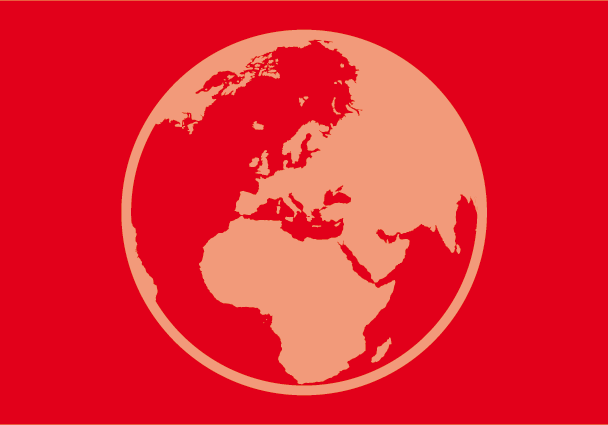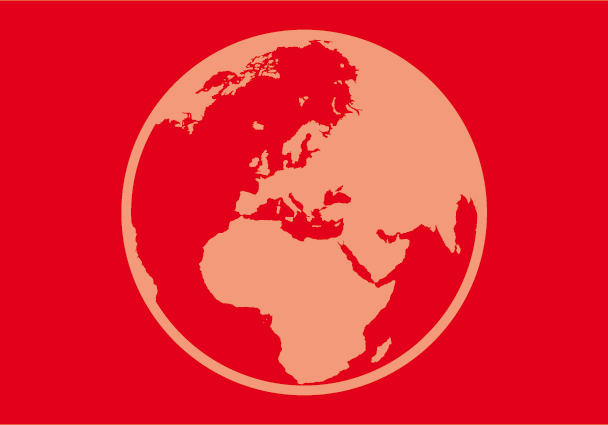 Members of the Eminent Jurists Panel on Terrorism, Counter-terrorism and Human Rights concluded their visit to Moscow today.
Members of the Eminent Jurists Panel on Terrorism, Counter-terrorism and Human Rights concluded their visit to Moscow today.
The Panel, an independent group of eight jurists appointed by the International Commission of Jurists (ICJ), is conducting a global inquiry on the impact of terrorism and counter-terrorism measures on the rule of law, human rights and humanitarian law.
The Moscow hearing was the tenth hearing by the Panel, which will issue a global report on terrorism, counter-terrorism and human rights in autumn 2007. The hearing was organized by the ICJ and the ad hoc Steering Committee of Russian NGOs including the Independent Council for Legal Expertise, Center for the Development of Democracy and Human Rights, “Memorial” Human Rights Center, Center “Demos”, Nizhny Novgorod Committee against Torture, and Moscow Helsinki Group.
Mary Robinson, Stefan Trechsel and Hina Jilani represented the Panel in Moscow, at two days of public hearings on the Russian experience of terrorism and counter-terrorism. They heard evidence from leading lawyers, academics, members of the State Duma, representatives of national and international civil society organizations and members of the public affected by terrorism and counter-terrorism. They also held private meetings with representatives of the Ministry of Justice, the Chairperson of the Legal Committee of the State Duma, the Deputy Chairperson of the Committee on Legal and Judicial Affairs of the Council of Federations, the Chairperson of the Council of the President of the Russian Federation on Assistance to Development of Civil Society Institutions and Human Rights and the Human Rights Ombudsman of the Russian Federation. The Panel members wish to thank those they met and who appeared before them for their cooperation.
The Panel members deeply regret, however, that they were not able, despite repeated efforts, to address the very serious issues raised in the public hearings with senior Government representatives of the Ministry of Defence, Ministry of Internal Affairs, the Ministry of Foreign Affairs, the Federal Security Services and the General Prosecutors Office and to listen fully to their perspective on the challenges in combating terrorism within the rule of law.
All those heard by the Panel recognized the real and serious threat of terrorist acts in the Russian Federation and stressed the obligation of the state to protect the citizens from such peril. Many of those who gave evidence to the Panel noted the gravity of the terrorist attacks experienced in the Russian Federation, of which the siege of the Dubrovka Theatre and the school in Beslan are the most prominent examples. The Panel also heard evidence of the development of the internal conflict in Chechnya and the North Caucuses and of continuing serious human rights abuses committed by armed groups.
Terrorism and counter-terrorism have a profound effect on Russian law and the Russian legal system. The Panel members heard in particular about the cumulative impact on human rights and the rule of law of the combination of the recent Law on Countering Terrorism, the amended Law on Extremism and on Mass Media, and the curtailment of freedom of civil society organizations.
Legal experts raised a series of concerns regarding the 2006 Law on Countering Terrorism, notably:
- its broad definition of ‘terrorism’ and ‘terrorist activity’ and its consequences for legal certainty in the application of the law and the potentially chilling effect of the newly enacted offence of “justification of terrorism” on freedom of speech and an open debate on issues related to terrorism;
- the wide discretion to apply the “regime of counter-terrorist operation” across a large area without time-limitation, and to take measures seriously interfering with human rights within the area of the counter-terrorism operation, without the declaration of a state of emergency and without the necessary safeguards against abuse;
- the broad discretion left to a Director of counter-terrorism operations in the implementation of the law, failing clear requirements of proportionality and necessity and the absence of effective internal and external oversight mechanisms guarding against abuse;
- the provisions in the law, which secure impunity for violations of human rights in counter-terrorism operations.
Additional concerns were raised regarding the scope of the powers to undertake counter-terrorism operations outside of the jurisdiction of the Russian Federation and the diplomatic immunity provided for security services of other states operating in the Russian Federation in the context of the Shanghai Cooperation system.
Many experts expressed concern regarding the Law on Extremism, because of its vague and broad definition of ‘extremism’, allowing selective and unpredictable measures against political or media activity critical of the authorities, in particular in relation to the conflict in the North Caucasus. They explained the chilling effect of the law on freedom of speech, the media and on civil society organizations. The problematic interplay of the law on Extremism, the Law on Mass Media and the new law regulating non-governmental organizations, was illustrated in the case of the Russian-Chechen Friendship Society.
The Panel members also heard about increasing State pressure on human rights organisations and a rhetoric that marginalizes Human Rights Defenders as hostile to the state. National and international human rights organizations noted that it is difficult to engage in meaningful dialogue with the authorities on human rights problems related to the fight against terrorism and noted an increasing hostility towards human rights organizations and international human rights institutions and procedures.
The Panel members note that despite the conflict in Chechnya, no state of emergency has been declared in the region, and there has been no derogation from international human rights obligations in respect of the situation there. While those who appeared before the panel reported that the scale of gross human rights violations has diminished in recent times and that the government considers the conflict to have come to an end, the panel is deeply concerned about the evidence it has heard of continuous widespread human rights violations, including arbitrary killings, torture, secret and incommunicado detention and disappearances carried out in the name of counter-terrorism. These practices violate international human rights law as well as norms of international humanitarian law applicable in internal conflicts. A recurring theme of the hearing was persistent accounts of impunity of those responsible for such abuses in Chechnya and the North Caucuses and the systemic lack of effective investigations into killings, torture, arbitrary and secret detention, and in many cases active hindrance to an effective investigation. Many stressed the need for full accountability of those involved in counter-terrorist operations as a way forward to regain the confidence of the local community and for a successful fight against terrorism.
The Panel members also heard serious allegations about the lack of a full, independent investigation into the circumstances of the counter-terrorist operations at Beslan and the Dubrovka theatre siege.
The hearing also brought serious shortcomings in the administration of justice to the fore, in particular at trials of those suspected of terrorism in the North Caucasus, including the use and reliance on confessions obtained by torture, fabricated cases, lack of independence of judges in the Chechen Republic and serious impediments to access to lawyers, case files or to independent medical expertise.
The Panel members recognize the important and difficult duty of governments to protect against a serious threat of terrorist acts and the need to put in place an effective legal framework to counter terrorism in the Russian Federation. However, they are concerned by the corrosive effect of recently adopted or amended legislation, on the rule of law and the protection of human rights.
The Panel members particularly note the lack of protection through law. They are worried by the lack of accountability and instances of hindrance to those seeking justice before domestic or international courts. They are also troubled by the negative impact of counter-terrorism on civil society organizations and the media. The Panel members consider that, where a society is under pressure from terrorism, journalists and civil society have a particularly important role to play in providing an independent check on the exercise of state power. If the rule of law is to be preserved, it is also essential that lawyers are able to freely represent individuals claiming violations of their human rights by the State, and that applicants in such cases should be free of harassment and intimidation. In this regard the Panel members are particularly concerned over accounts of harassment of individuals and their lawyers making applications to the European Court of Human Rights.
The Panel notes that despite constraints on the work of non-governmental organisations, there is a strong and active civil society in the Russian Federation, committed to the preservation of human rights. The Panel members particularly wish to express their sympathy and support to those members of the public, directly affected by acts of terrorism or by counter-terrorism operations, who presented evidence at the hearing. The Panel is confident that they will not suffer any harassment as a consequence of their testimony.
Background
The Panel is composed of eight judges, lawyers and academics from all regions of the world. The Panel exercises its mandate independently, with the logistical support of the ICJ Secretariat and its network of organizations. Arthur Chaskalson, former Chief Justice and first President of the Constitutional Court of South Africa, chairs the Panel.
The panel members present in Moscow are:
Hina Jilani (Pakistan), a lawyer before the Supreme Court of Pakistan and the UN Secretary General’s Special Representative on Human Rights Defenders; Mary Robinson (Ireland), now Head of the Ethical Globalization Initiative, and former UN High Commissioner for Human Rights and former President of Ireland; Stefan Trechsel (Switzerland), former President of the European Commission on Human Rights, and currently judge at the International Criminal Tribunal for the former Yugoslavia.
The other members are Georges Abi-Saab (Egypt), former Judge at the International Criminal Tribunals for the former Yugoslavia and for Rwanda; Robert K. Goldman (United States), Professor of Law at American University’s Washington College of Law, a former President of the Inter-American Commission on Human Rights and former UN expert on counter-terrorism and human rights; Vitit Muntarbhorn (Thailand), Professor of Law at Chulalongkorn University in Bangkok and UN expert on human rights in North Korea; and Justice E. Raúl Zaffaroni (Argentina), a judge at the Supreme Court of Argentina.
The Panel has held hearings in Australia, Colombia, East Africa (Kenya, Tanzania and Uganda), the United Kingdom (in London on current counter-terrorism policies and in Belfast on lessons from the past), North Africa (Algeria, Morocco and Tunisia), the United States, the Southern Cone (Argentina, Brazil, Chile, Paraguay and Uruguay), and South-East Asia (Indonesia, Malaysia, the Philippines and Thailand). Other countries or regions where the Panel will also hold hearings include South Asia, Canada, the Middle East and the European Union.
Russia-counter-terrorism measures-web-2007-eng (full text in English, PDF)
Russia-counter-terrorism measures-web-2007-rus (full text in Russian, PDF)





